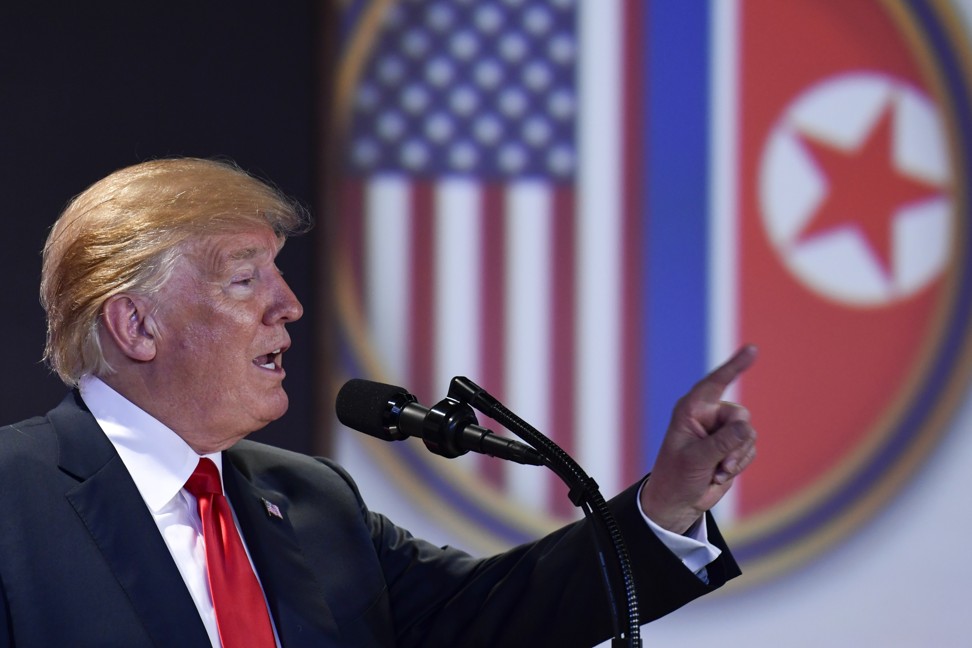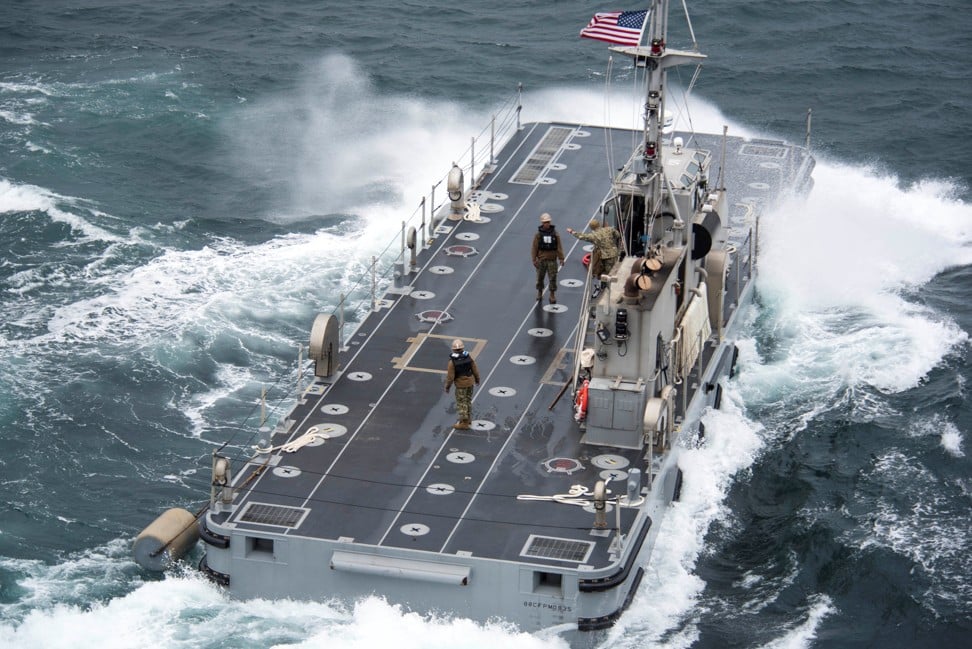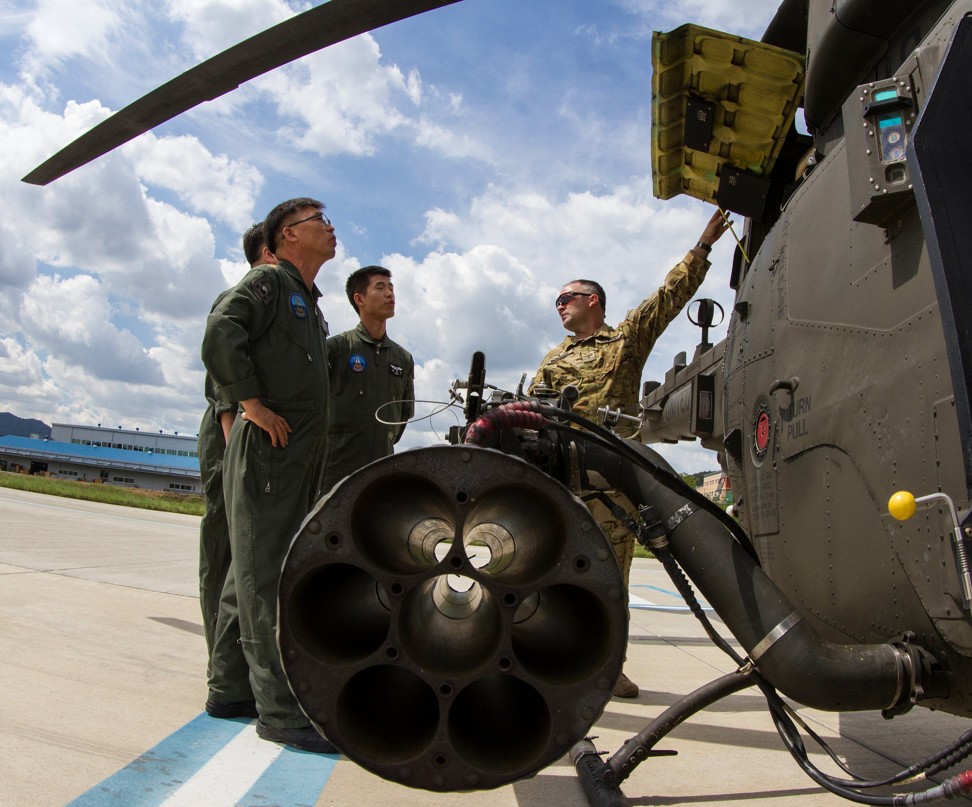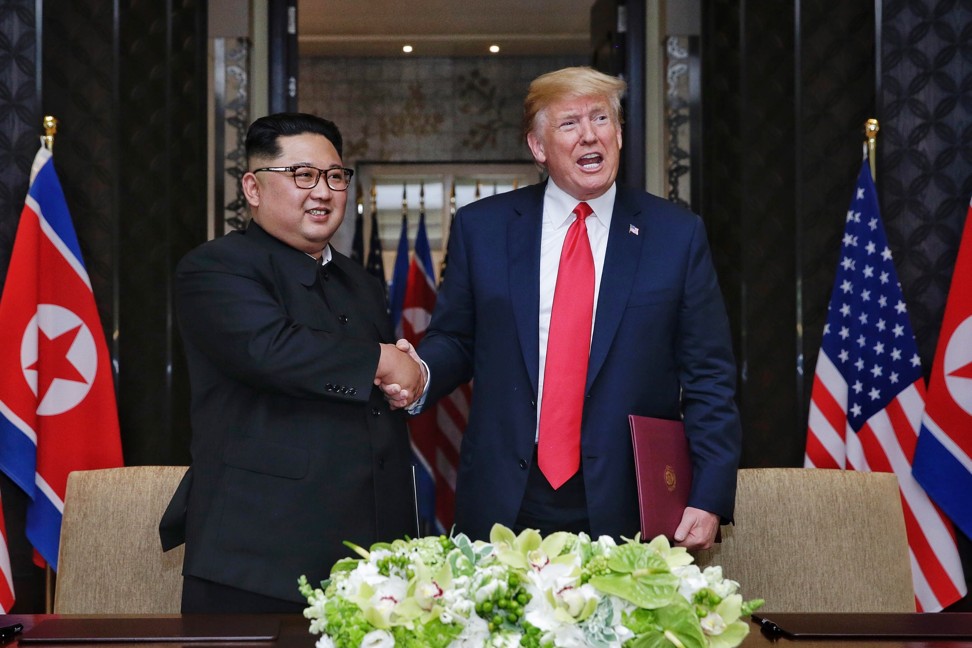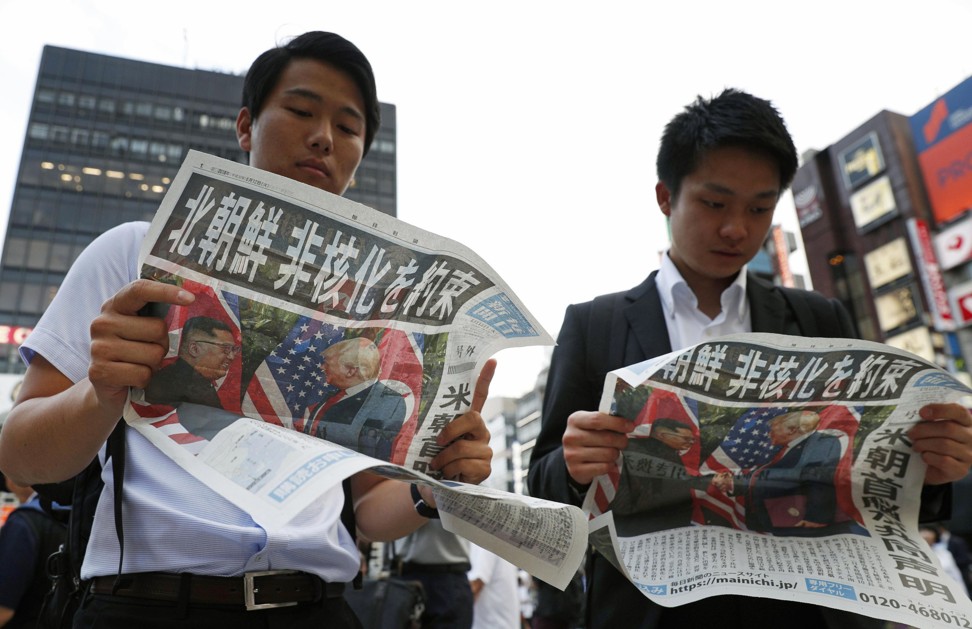
Will US-North Korea deal leave Japan, South Korea vulnerable?
Tokyo and Seoul surprised by Donald Trump’s announcement he plans to end joint military drills and ‘bring troops home’
South Korea and Japan were left confused and concerned about their long-term security after US President Donald Trump said America would no longer take part in “war games” with its East Asian allies and wanted to reduce troop numbers in the region, analysts said.
At a briefing immediately after his landmark summit with North Korean leader Kim Jong-un in Singapore on Tuesday, Trump described the joint military drills with South Korea as costly and “provocative”, and said he would like to bring home the 32,000 soldiers based there.
“This is bad news for both South Korea and Japan, as joint exercises form an important part of the US’ deterrence strategy,” Benoit Hardy-Chartrand, an adjunct professor at Temple University in Tokyo, said.
While Seoul and Tokyo welcomed the Singapore summit and the release of the joint statement, the two allies, which live with the direct threat of Pyongyang’s nuclear and conventional weapons, appeared surprised by Trump’s announcement.
South Korea’s defence ministry sought to play it down, saying in a statement that it “need[s] to find out the exact meaning or intention behind [Trump’s] comments”.
Japan also expressed concerns. Defence Minister Itsunori Onodera said on Wednesday: “The drills and the US military stationed in South Korea play a vital role in East Asia’s security.”
Meanwhile, the United States’ military spokeswoman in South Korea, Lieutenant Colonel Jennifer Lovett, said forces there had not received any instructions to cease training exercises, and a joint drill planned for the autumn would go ahead unless they were instructed otherwise.
Regional security experts said that in light of Trump’s about-face on joint military drills with South Korea – he had earlier been against such a move – it was no surprise that Seoul and Tokyo had security concerns.
Leonard Edwards, Canada’s former ambassador to Japan and Korea, who is now a distinguished fellow at the Centre for International Governance Innovation, a Canadian think tank, said the US would need to give South Korea and Japan strong reassurances that it would remain committed to their security.
“Since it appears that this “concession” was provided personally and spontaneously by President Trump to Chairman Kim as the meeting drew to a close, and without an equivalent corresponding action from Mr Kim … this will be of concern to both Japan and Korea,” Edwards said.
The most recent joint exercises – Foal Eagle and Key Resolve – involving about 23,700 US and 300,000 South Korean troops were held in March.
These large-scale military exercises have often infuriated Pyongyang and prompted the Communist regime’s condemnation, nuclear tests and missile launches. Critics have accused them of ratcheting up hostilities.
Besides the cessation of the joint exercises, analysts said Seoul had even more to worry about than Japan because of Trump’s comments about the removal of US troops, even though he said such a move was “not part of the equation” right now.
“In the short to medium term, Seoul has more to lose given that Donald Trump declared in his press conference that he was hoping to eventually withdraw US troops from the Korean peninsula,” Hardy-Chartrand said.
“Such a decision would irreversibly damage the US-South Korea alliance,” he said.
Jeong Se-hyun, a former South Korean unification minister, said that Trump’s comments might have been made as part of “a calculation to get [South Korea] to cover more of the cost of stationing the US troops”.
Japan and South Korea are the largest and third-largest host nations for US troops overseas. The relationship stretches back to the 1950-53 Korean war, which resulted in the division of the peninsula.
However unprecedented the Trump-Kim meeting might have been, the United States’ proposal to cancel military drills was not.
In the 1990s, the large-scale Team Spirit exercises involving troops from the US and South Korea were cancelled several times in exchange for North Korea’s commitment to denuclearisation. Pyongyang later reneged on an agreement to dismantle its nuclear reactors.
Tsuneo Watanabe, a senior fellow at the Sasakawa Peace Foundation in Japan, said, however, that without knowing the details of the Trump-Kim negotiations it was too early to judge whether Seoul and Tokyo should be worried.
“If Trump unilaterally gives up the opportunity to keep pressing the DPRK [North Korea] through military drills, it could be bad news,” he said.
“[But] If giving up the drills is part of a deal that would guarantee the DPRK’s cooperation on denuclearisation, it could be good news. At the moment, we don’t know.”
Even if the US does halt, or even suspend, its exercises with South Korea, the chance of a change to the security regime in the region – and especially in Japan – remains low, as Washington’s fundamental interests in East Asia have not altered, experts said.
“The commitment of the USA to Japanese security remains, and consists of more than a military presence in the Republic of Korea [the formal name of South Korea], should that be wound down as conditions on the peninsula improve,” Edwards said.
“The real concern would be if the USA were to downscale its military presence generally in Asia as part of a strategic withdrawal, which at least for now does not seem to be on the cards,” he said.
Watanabe said that one of the United States’ foremost strategic priorities in the Asia region was countering Beijing’s growing assertiveness and global influence.
“North Korea is not the only the reason for the Japan-US security cooperation,” he said.
“US forces in Japan are responsible for security in the region as a whole, not just the defence of Japan. In fact, the US is more concerned with China’s rising military power than it is with the DPRK.”



